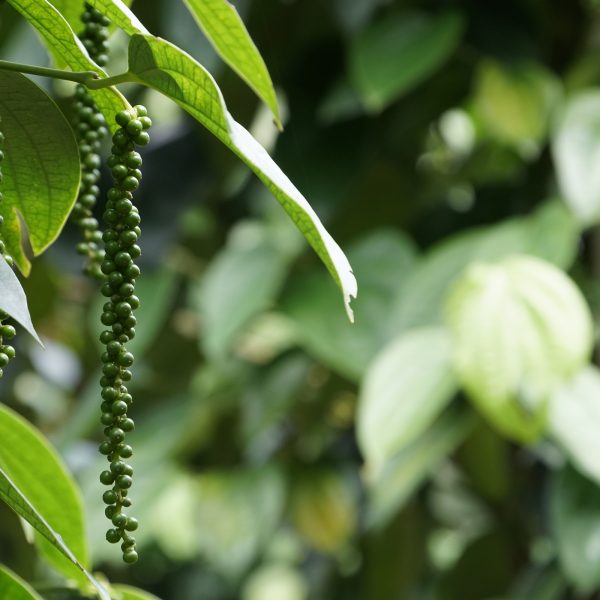In Ayurveda, the menstrual cycle has its very own Vata, Kapha and Pitta stage. How can this help? If you can recognise which phase affects you most, there are differing strategies in terms of how you can support yourself.
Your Ayurvedic menstrual cycle

In Ayurveda, understanding your own personal health concerns is centred around recognising your ‘dosha’, or constitution. In some ways, your ‘dosha’ is a little like your ‘health star sign’. Understanding your dosha will help you to understand how your body works and, therefore, how you can help it. There are three core Ayurvedic ‘dosha’, Vata, Pitta and Kapha. Put simply, everyone will have a little bit of all three, but there is often one that is more dominant than the other. Vata types are highly creative and a little like a whirlwind of ideas, Kapha types are your steady, strong grounded individuals’ that often hold everything together. Your Pitta types are fiery, passionate, competitive and determined. Already you can probably recognise which one you might be.
But, how does this relate back to the menstrual cycle? Interestingly, in Ayurveda, the menstrual cycle has its very own Vata, Kapha and Pitta stage. How can this help? If you can recognise which phase affects you most, there are differing strategies in terms of how you can support yourself.
Here is how the Ayurvedic menstrual cycle works:
- The Vata phase lasts from approximately day 1-5 (from the first day of bleeding)
- The Kapha phase lasts From the end of bleeding until ovulation (approx. days 4-14)
- The Pitta phase lasts from ovulation until your period starts (days 14-18)
How to support your cycle
And, here is how each phase is characterised with tips on what you can do to help:
Vata types

Vata is the force that regulates all downward movements in the body, pushing the menstruum down and out of the body. Vata, therefore predominates during the period itself. If your Vata is out of balance, it will manifest as digestive upset, constipation, pain on intercourse, fatigue, anxiety and/or insomnia indicating the need for some Vata balancing practices.
How do we balance Vata? This is a time to keep warm, rested and safe. Manage your diary so that you have some calm space during this time to recharge and keep life on your terms. This is an opportunity for an extended me-time. Calming, nourishing herbs that will strengthen and support your adrenal glands are key here. For example, Licorice and Ashwagandha. Steer clear of anxiety inducing stimulants and create space for mindfulness and meditation.
Kapha types
Kapha types naturally nourish and strengthen others. They are your mother-earth. So, the Kapha stage of the cycle is all about building the endometrium (the mucous membrane that lines the inside of the uterus). Oestrogen is the hormone that builds and increases at this time. It is the phase of restoring strength to the body and preparing for conception. If your Kapha is out of balance it will manifest as imbalances such as fluid retention, breast distension, weight gain, discharge, fatigue, back ache and general ‘heaviness’ may appear at this time. Kapha types also store not just energy, but memory and emotion. If you notice you feel teary and a little low, it could be an indicator of imbalanced Kapha.
How do we balance Kapha? This is a time so often filled with energy and vitality when you can rebuild your nutritive strength, take tonifying herbs and spread your wings. Building herbs that support oestrogen balance are key here. Oestrogen dominant conditions are characteristic of a Kapha imbalance. Shatavari is your primary herbal remedy alongside cleansing, decongesting herbs such as Aloe Vera.
Pitta types
Pitta types are naturally hot and fiery. Fire is transformative and this is stage where the body prepares itself for new life; the endometrium for implantation of the fertilized egg and the breasts for milk production. Essentially, Pitta fires our body in readiness for conception. It is the hormone progesterone that peaks during this phase.
Severe PMS is a classic sign of imbalanced pitta, due to hot pitta accumulating in the blood and liver. As the blood channels and menstruation are connected, there can be extra heat in the system, leading to skin irritations, headaches, diarrhoea, feelings of irritation and emotional overload. This is when Pitta types can really manifest as fire!
How do we balance Pitta? This is an important time to help the liver metabolise the high hormone levels; increase the amount of colourful vegetables, do your exercise and let your spirit soar. Use heat-clearing and liver-regulating solutions such as Turmeric and classic greens like Spirulina.





























